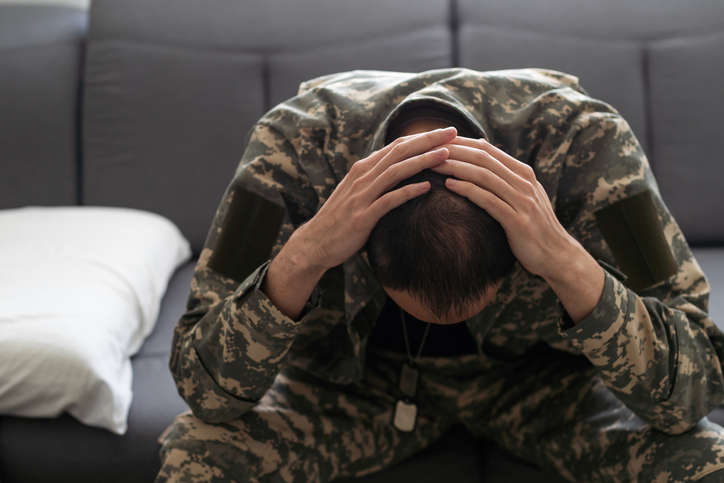Veterans with anxiety disorders often face obstacles in securing the VA disability benefits they deserve. Understanding the evidence required is essential to building a strong claim and ensuring a successful outcome. A well-prepared claim supported by thorough documentation can make all the difference in the process. This guide will walk you through the eligibility criteria, essential evidence, and steps to take for a comprehensive claim.
Eligibility Criteria for VA Disability Claims
Three elements of Service Connection Requirement
To receive VA disability benefits for an anxiety disorder, veterans must prove the three elements of service connection. This involves a current diagnosis, an in-service event, and medical nexus between the two. The medical nexus means proving that the disorder either started during service or resulted from another service-connected condition. Strong evidence, such as service records, medical evaluations, and personal accounts, helps demonstrate this link. Veterans will want to consider secondary connections, such as anxiety stemming from chronic pain or other conditions related to service.
In any claim, and especially a claim for mental health, a Veteran's lay statement is very important in providing an account of your in service stressors or events. Buddy and family statements who knew you at the time of your service are very helpful as well. You want to do as much as you can to document the in service events, your symptoms afterwards, and your current symptoms that result from that event.
Evidence for Supporting a Claim
Medical Evidence
Medical evidence is the foundation of a VA disability claim for anxiety disorders. Key elements include a documented diagnosis, records of ongoing treatment, and detailed notes on how the disorder impacts daily life. Medical professionals should specify any symptoms, functional impairments, or severity related to the condition. Evidence helps verify the disorder's existence and its connection to service, bolstering the claim. Veterans must maintain up-to-date records and should request copies to include in their application.
Service Records and Personal Statements
Service records and personal statements offer critical support in connecting an anxiety disorder to military service. Events documented in service records and the veteran's account create a compelling narrative. Personal statements should include detailed experiences and their link to mental health struggles. Combined with service records, they provide the VA with essential context for evaluating the claim. Details and clarity are essential in presenting these experiences to create a strong case.
Role of Medical Evaluations and Nexus Letters
Compensation and Pension (C&P) Exam
The C&P exam is a required step in which a VA provider evaluates the disorder's severity and daily life impact. During this exam, veterans should honestly discuss symptoms, including examples of how the disorder interferes with usual activities. Documenting personal struggles ahead of time helps stay organized during the exam. The VA relies on this information to determine eligibility for benefits. Preparation ensures the provider captures the full extent of the condition's impact.
Nexus Letters from Medical Professionals
A nexus letter serves as expert evidence linking anxiety disorders with service. Written by a healthcare provider familiar with the veteran's case, it solidifies the service connection. The letter should explicitly state how military experiences contributed to the disorder and reference consistent medical history. Healthcare professionals should outline their reasons and base conclusions on medical expertise. This letter significantly strengthens claims and supports the application for benefits.
There are many considerations to take into account when deciding when to get a nexus opinion. For example, you would not need to get a nexus opinion on a presumptive issue. The level of appeal or review you are at also factors into when to get a nexus opinion.
Common Challenges and How to Overcome Them
Insufficient Evidence
Lack of evidence is a widespread challenge in disability claims. Veterans can avoid this issue by compiling comprehensive service records, seeking diagnosis and treatment from credible professionals, and retaining personal documentation. By proactively addressing any missing details, veterans increase their likelihood of approval. Consulting legal representatives or organizations can also highlight overlooked gaps to ensure claims are complete.
Denial of Claims
Denials are often due to insufficient proof or unclear documentation connecting the disorder to service. However, the appeals process allows veterans to provide more evidence or clarify existing records. Seeking help from knowledgeable legal teams can improve outcomes during this phase. Veterans should approach appeals as opportunities to refine their case and secure deserved benefits through persistence and focus.
Veteran Disability Lawyers in Atlanta, GA
Navigating the VA claims process for anxiety disorders can be overwhelming, but you don't have to go through it alone. At Affleck & Gordon, we specialize in guiding veterans to the benefits they rightfully deserve. With years of experience in VA claims, our team knows how to strengthen your case and overcome potential roadblocks. Whether you're filing a new claim or appealing a denial, we are here to offer dedicated support every step of the way. Contact us at (404) 990-3945 or visit our office in Atlanta, GA, to build a compelling claim and secure your future today.




.jpg.2601080643193.webp)
.jpg.2601080643200.webp)
